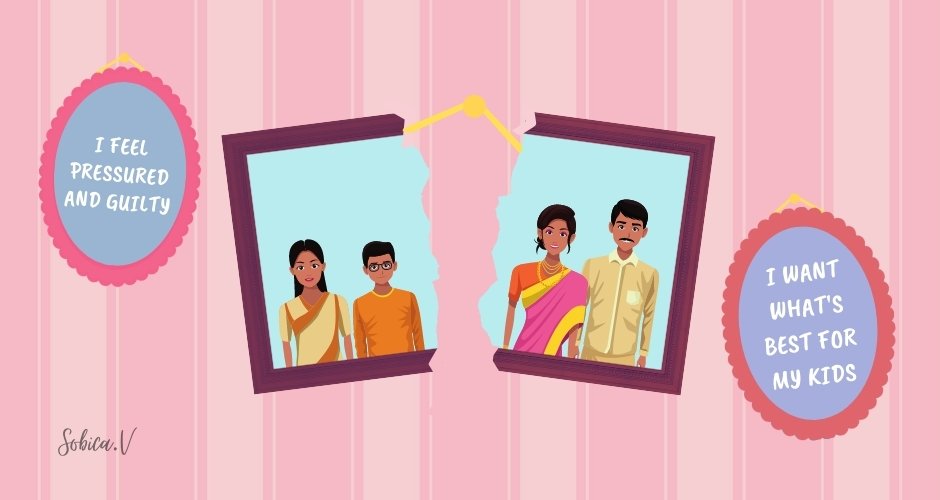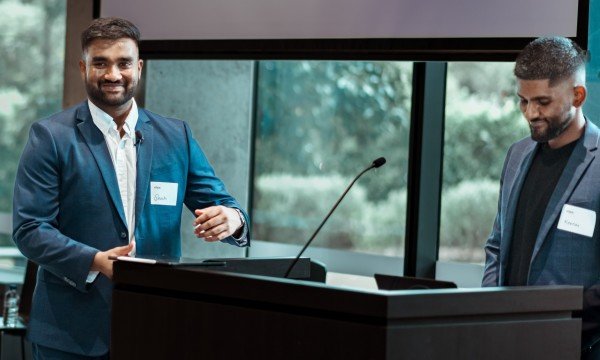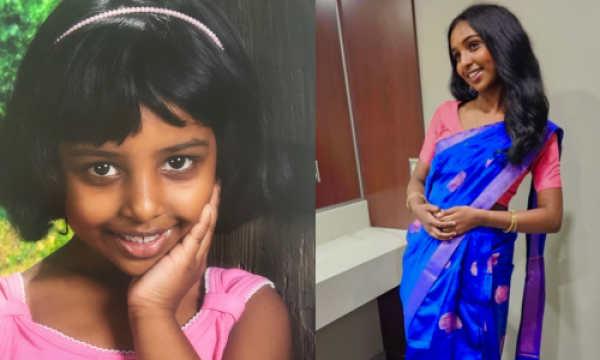
Date on your own terms! myTamilDate has been the most trusted dating community for single Tamils around the world for close to a decade! We’re the premiere dating site for diaspora Tamils and have the largest membership base in Canada, USA, UK & more. JOIN TODAY: https://mytamildate.com/
Meet our latest couple Madhu & Niya:
____
The ideas of sacrifice and hard work are often-touted ideals in our community: refugees and immigrants, a few cents in their pockets, left a war-torn country to provide better opportunities for their children. The children go to school, work hard, buy homes, and find success, while often reminded that this was done for them, and not to screw it up.
But what does it mean to “screw it up?” From whose perspective? Is it financial? Reputational? Internal fulfilment? How do you measure it? In many cases, it takes the form of living the life your parents have determined is the best one, irrespective of how you may define your own success. And this is a problem.
For our parents, with few opportunities and more urgent priorities, life had (or so it seems) an easily understandable, linear path: success came down to their kids getting their education, getting married, finding job success, and taking care of their parents in their later years. Looking at all the Tamil boomers in and around my life, most of them worked two or three minimum-wage jobs, working hard to keep the lights on while dealing with repressed trauma and unspoken feelings of their difficult journeys to peace and safety.
It may be true that many of us born or raised outside of Sri Lanka do not have these more primal struggles. But for younger people, the linear path to success is a bit more nuanced: education is valuable but not always necessary; getting married is not always an indicator of success, and if we are to get married it has to be with the right person; job success can mean making money, being fulfilled, or a combination of both; taking care of your parents is a desire many young people share, but can also be extremely difficult financially. These nuances are often a point of criticism; of how children have failed in their mission to meet their parents’ expectations, and make their parents’ sacrifices worthwhile.
Check out myTamilDate's 'Dating While Tamil' podcast:
I have often watched friends buckling under the strain of these pressures, trying to explain these intricacies to their parents. It is funny to see the puzzled looks that come across parents’ faces when they try to comprehend that their children crave understanding, compassion, belonging, affection and support; that they want to find fulfilment in their work, and be with a partner who treats them well, alongside the push towards economic, educational and marital success. As these differences often become sore points in the relationship between older and younger generations, the guilting often begins; for not upholding toxic relationship dynamics, for not following the most lucrative career, or not putting their parents’ needs before their own.
The concept of internal fulfilment may not have been a luxury that was easily accessible to most of our parents. The pressure they often place on their children may come from a genuine desire to help and see their kids succeed, so that we do not face the same struggles they faced. However, it can also come from fears of community perception and other less altruistic motives. It is important to recognise the stark differences in worldview that inform these perspectives. Fulfilment, while often not a consideration for older generations whose main goal was survival, is often something important and achievable to children raised here. With survival not a particular threat, we have the ability to look past these more basic goals and think bigger.
It is also important to talk about the negative consequences of these pressures, aside from widening the generational divides that already persist in our community. Constantly racing to gain the approval of parents stuck in these constrained worldviews can lead to continuous feelings of guilt and failure, and feelings of inadequacy and never being good enough. It also teaches young people to accept toxic behaviour from partners and friends, to put their needs second to those around them, develop unhealthy coping mechanisms, and not put up healthy personal boundaries. The end-result is often the perpetuation of mental health struggles, resentment and intergenerational trauma.
Parents have undoubtedly done a lot to help you by raising you and putting food on the table. But that was their responsibility. They may have provided opportunities and freedoms that they never had, but that does not place you in their debt. You did not choose to be born. Values of community and helping those around us are beautiful, but this should never be at the cost of your health. Our parents undoubtedly had to go through a lot of difficulties in their lives. The stories of struggle and displacement are familiar to all of us. This was extremely unfair to them. The reason they came here was to build a better life for themselves and their children. It is important that the next generation defines for itself what a better life is and does not carry this burden forward, but instead finds constructive ways to live fulfilling lives and break vicious cycles. Maybe that means you do not end up with a degree, or you marry later in life to someone you actually love (or don’t marry at all), or you are not able to pay off your parents’ debts. You can only do what you can. And that is ok. One of the luxuries that our parents provided for us by uprooting their lives is the privilege to think beyond just survival, and define our own successes and choices in life.
This might look a little different to what your parents had in mind—but it may also just be the way to make their sacrifice really mean something.
Check out more of 'Dating While Tamil':
CLICK HERE to listen to us on Spotify!

























